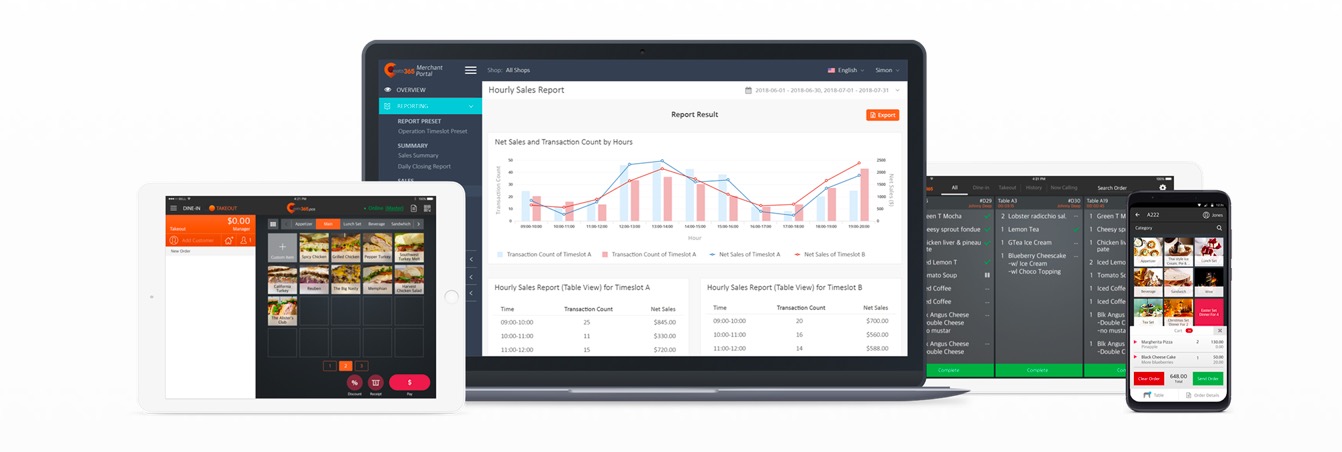What is a POS System? How Does It Work in Restaurants?
Running a successful restaurant requires more than great food. Efficient operations rely on Point-of-Sales (POS) systems. But what is a POS system, and why is it essential for modern restaurants? Let’s find out.

Contents
What is a Point-of-Sales (POS) System?
A Point-of-Sales (POS) system is a combination of hardware and software that allows businesses to process transactions and manage operations. In restaurants, the POS system serves as the central hub where orders, payments, and inventory meet. Traditionally, POS systems were simple cash registers, but modern solutions are much more advanced.
Today’s POS systems integrate tools for payment processing, kitchen management, sales analytics, and even customer relationship management (CRM).
Whether it’s a fixed POS terminal at the counter or a portable tablet used tableside, a POS system helps streamline operations and enhance customer service. In essence, a POS system is more than just a tool for handling payments—it’s the backbone of a restaurant's day-to-day operations.

What Can a POS System Do in Restaurants?
In a fast-paced restaurant environment, a modern restaurant POS system had became the most comprehensive tool that supports restaurant's daily operations, enhances customer satisfaction, and even drives business growth.
Here are some key capabilities of POS systems in restaurants:
1. Order Management and Payment Processing
POS systems streamline the order-taking process, reducing errors and improving speed.
Orders entered into the system by waitstaff are instantly sent to the kitchen, ensuring accurate and timely preparation. Payment processing is equally seamless, supporting multiple methods such as cash, credit cards, digital wallets, and even split payments.
Read more: Back of House | Restaurant POS Solution | Eats365 (eats365pos.com)
2. Data Collection and Analytics
Data is the backbone of any successful business, and modern POS systems excel in this area. They track essential metrics such as sales figures, daily reports, staff performance, customer data, and product popularity.
For instance, sales data can reveal trends, helping you understand which dishes perform best during certain times. Customer data highlights high-value customers, enabling tailored marketing strategies. With such insights, restaurant owners can make informed decisions to improve efficiency and profitability.
Additionally, POS systems allow business owners to analyze data over specific time periods, ensuring a deeper understanding of long-term trends.
3. Scalability
As your restaurant grows, your POS system should grow with you.
Scalability is an often-overlooked feature that ensures a POS system can handle increasing complexities, from managing multiple locations to compiling consolidated reports. Whether you’re expanding locally or internationally, a scalable POS system gives you complete control of your operations from a centralized platform, no matter how large your business becomes.
Read more: Multi-Location / Brand Management | POS Solution | Eats365 (eats365pos.com)
4. Customer Relationship Management (CRM)
A modern POS system includes CRM features to help restaurants build stronger customer relationships. These tools track customer preferences, spending habits, and contact information.
Loyalty programs, a critical CRM component, encourage repeat visits by offering rewards for continued patronage. Customers who feel valued are more likely to choose your restaurant over competitors, making CRM a powerful tool for customer retention.
5. Portability
Gone are the days of stationary POS terminals. Modern solutions are portable, taking the form of mobile devices or tablets like mPOS. This portability offers flexibility to business owners and staff, allowing them to manage orders, payments, and reports on the go. Multiple devices can be deployed in a single restaurant, with permissions tailored to different staff roles. For instance, managers can access advanced reporting tools, while servers can use tablets for order entry.
Read more: Eats365 Biz | All Orders & Payments on a Single Device (eats365pos.com)
6. Integrations with Third-Party Services
POS systems today are highly adaptable, thanks to their ability to integrate with third-party services. Whether it’s connecting with local payment providers or syncing with food delivery platforms like Uber Eats or Deliveroo, these integrations eliminate the need for multiple disjointed systems. Open-source POS platforms allow businesses to customize features, ensuring smooth operations tailored to their specific needs.